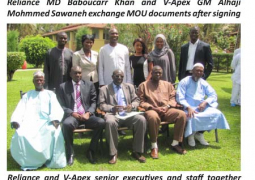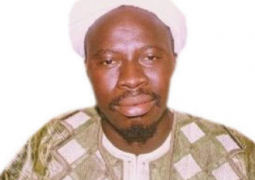The UNSCR 1325 adopted thirteen years ago calls on member states to ensure greater participation and representation of women in decision-making processes within governance institutions and within national, regional and international conflict prevention, management and resolution mechanisms.
Bintou Gassama, deputy permanent secretary, Office of the Vice President, said in her welcoming remarks that the meeting was designed to sensitise the rural population on the content of the UN Security Council Resolution 1325 and its domestication process in The Gambia.
She said a key aspect of Resolution 1325 is that it recognises the link between the impact of armed conflict on women and girls, and their participation in peace processes, with the promotion and maintenance of international peace and security.
In this sense, she added, it provides a political framework to mainstream a gender perspective as well as to ensure women’s participation in all aspects of conflict prevention, resolution and reconstruction.
“The resolution refers to the disproportionate and unique impact of armed conflict on women and girls while at the same time acknowledging that women are not mere victims of conflict, but also active agents with an important role to play in conflict prevention, peacekeeping initiatives, conflict resolution, and peace-building efforts,” she said.
“Despite the fact that The Gambia has not experienced any major conflict since 1981, it is situated within a region that has witnessed conflicts within the past decade,” says Abu Njie, Deputy Governor of Lower River Region.
To continue to be a harbinger of peace, he said the National Action Plan, which seeks to domesticate the resolution amongst other measures, will serve as a guarantor of continuous peace and stability, particularly for women and girls in The Gambia.
Mr Njie said a corollary to the action plan is the plethora of international conventions ratified by the Government of The Gambia and the enactment of various national laws and policies to ensure effective gender mainstreaming and the protection of the rights of women and girls.
“Another key initiative is the enactment of domestic laws protecting the rights of women which include the 1997 constitution, the Women’s Act, the Children’s Act, the Criminal Code, the Trafficking in Persons Act, the Tourism Offences and the Refugee Act,” the LRR Deputy Governor said.
Meanwhile, in a concurrent meeting with Lower River Regional District Chiefs at the same ground, officials from the Gambia Federation of the Disabled (GFD) sensitised the local authorities to rekindle the campaign for empowerment, equity and integration of persons with disabilities in society.
Speaking to journalists at the end of their brief meeting, Isatou Sanyang, chairperson of the GFD, said their mission was to sensitise the people to know that disability does not mean inability.
She said the local authorities were among her targets to spread the message that when given the chance, “people with disabilities, especially children, are capable of overcoming the barriers to their inclusion. They ought to be given the pace to take up their rightful place as equal participants in society and the development of their communities”.
Edrisa Korita, project coordinator of Disability Employment Services under the GFD, said their focus is to narrow the gap between training and employment for persons with disabilities, which he said, can only be achieved through creating awareness and advocacy.
Musa Jobarteh, advocacy and awareness-raising volunteer for the GFD, said the story of exclusion of the disabled persons will change when the attitudes of communities towards them change.
It should always be noted by everyone that people can discriminate disability but disability does not discriminate them, he sends a word of caution.



